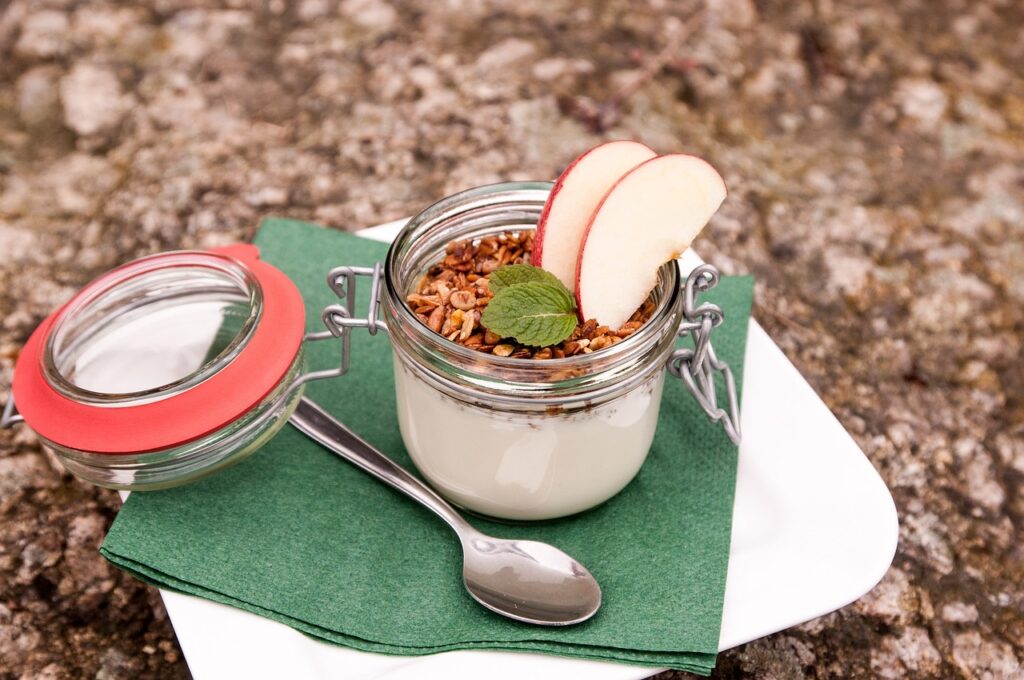4 Natural Ways to Improve Gut Health and Why It’s So Important

A flourishing gut microbiome is key to overall health and well-being, influencing everything from digestion to immunity and mental health. Fortunately, there are numerous natural strategies to support and optimize gut health, ensuring a balanced and resilient microbiome. In this article, we’ll explore four effective ways to improve gut health naturally, empowering you to take proactive steps towards a happier, healthier digestive system.
Understanding Gut Health
Taking care of gut health involves recognizing the intricate ecosystem that resides within our digestive system. The gut microbiome, consisting of trillions of bacteria, viruses, fungi, and other microorganisms, plays a crucial role in maintaining overall health. When the balance of this microbiome is disrupted, it can lead to various health issues such as inflammation, digestive disorders, and even affect mental health. Factors such as diet, stress, medications, and environmental toxins can influence the composition and function of the gut microbiome. Therefore, fostering a healthy gut environment through mindful eating, stress reduction techniques, adequate sleep, and incorporating probiotic-rich foods into the diet can support optimal gut health and overall well-being.
How Gut Health Influences the Body
Gut health plays a crucial role in influencing various aspects of overall well-being, impacting not only the digestive system but also other parts of the body. A healthy gut microbiome contributes to efficient digestion and nutrient absorption, ensuring that essential vitamins, minerals, and other nutrients are properly absorbed into the bloodstream to support overall health. Additionally, the gut microbiome plays a significant role in regulating immune function, as a large portion of the body’s immune system resides in the gut-associated lymphoid tissue (GALT). Moreover, emerging research suggests that gut health may influence mental health and brain function through the gut-brain axis, potentially affecting mood, cognition, and even behavior. Furthermore, imbalances in gut bacteria have been linked to various systemic conditions, including inflammation, metabolic disorders, and autoimmune diseases, highlighting the far-reaching impact of gut health on overall health and well-being.
Natural Ways to Improve Gut Health
1. Nourish Your Microbiome with Fiber-Rich Foods:
Diet plays a significant role in shaping the composition and diversity of gut bacteria, making it essential to incorporate fiber-rich foods into your meals. Fiber serves as fuel for beneficial gut bacteria, promoting their growth and proliferation while aiding in digestion and regularity. Embrace a diverse array of plant-based foods such as fruits, vegetables, whole grains, legumes, nuts, and seeds, all of which are rich sources of fiber and essential nutrients. Aim to include a variety of colors and types of plant foods in your diet to provide ample nourishment for your microbiome. Additionally, fermented foods like yogurt, kefir, kimchi, sauerkraut, and kombucha are excellent sources of probiotics, beneficial bacteria that help maintain gut health by crowding out harmful pathogens and promoting a balanced microbial environment.
2. Prioritize Stress Management and Relaxation Techniques:
The gut-brain axis, a bidirectional communication network between the gut and the brain, plays a crucial role in regulating digestive function, mood, and overall well-being. Chronic stress and anxiety can disrupt this delicate balance, leading to gastrointestinal issues such as bloating, cramping, and altered bowel habits. Incorporating stress management techniques such as meditation, deep breathing exercises, yoga, and mindfulness practices can help soothe the nervous system and promote relaxation, thereby supporting gut health. Cultivating a regular mindfulness practice or spending time in nature can also positively impact gut health by reducing stress levels and fostering a sense of calm and balance.
3. Stay Hydrated and Limit Intake of Sugary Beverages:
Proper hydration is essential for maintaining optimal digestive function and supporting overall health. Adequate water intake helps soften stool, making it easier to pass and preventing constipation. Aim to drink at least eight glasses of water per day, and consider incorporating hydrating foods like cucumbers, watermelon, and oranges into your diet. Additionally, be mindful of your consumption of sugary beverages such as soda, fruit juice, and sweetened coffee drinks, as excessive sugar intake can disrupt the balance of gut bacteria and contribute to inflammation. Opt for water, herbal teas, or sparkling water with a splash of citrus for a refreshing and hydrating alternative.
4. Get Quality Sleep and Establish a Consistent Routine:
Quality sleep is vital for overall health and well-being, including gut health. During sleep, the body undergoes essential repair and restoration processes, including the replenishment of beneficial gut bacteria and the elimination of toxins. Aim for seven to nine hours of quality sleep per night, and prioritize establishing a consistent sleep schedule to regulate circadian rhythms and optimize sleep quality. Create a relaxing bedtime routine to signal to your body that it’s time to wind down, such as dimming the lights, practicing gentle stretches or relaxation techniques, and avoiding screens and stimulating activities before bedtime.
Foods For Taking Care of Gut Health
Foods that are rich in fiber, such as fruits, vegetables, whole grains, and legumes, can be excellent choices for promoting gut health as they provide nourishment for beneficial gut bacteria. Fermented foods like yogurt, kefir, kimchi, sauerkraut, and kombucha contain probiotics that introduce beneficial bacteria into the gut, aiding digestion and supporting immune function. Prebiotic-rich foods like garlic, onions, leeks, asparagus, and bananas contain indigestible fibers that serve as fuel for beneficial gut bacteria, promoting their growth and proliferation. Including omega-3 fatty acids found in fatty fish like salmon, flaxseeds, and walnuts can help reduce inflammation in the gut and support overall gut health. Consuming a variety of these foods as part of a balanced diet can contribute to a healthy gut microbiome and enhance overall well-being.
By implementing these natural strategies, you can nourish and support your gut microbiome, promoting digestive health, immune function, and overall well-being. Incorporate fiber-rich foods, prioritize stress management techniques, stay hydrated, prioritize quality sleep, and establish a consistent routine to optimize gut health naturally. With a balanced and resilient gut microbiome, you’ll not only experience improved digestion but also enjoy enhanced vitality and vitality.